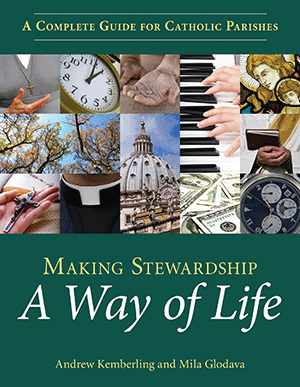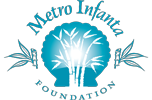By Mila Glodava
Excerpts from “Making Stewardship a Way of Life: A Complete Guide for Catholic Parishes“

A number of concerns and issues have kept parishes or pastors from embracing it. Below are a few:Stewardship is all about money. This is a common misunderstanding regarding stewardship. This is especially so with self-sufficient parishes. They don’t feel the need to introduce stewardship because they have the funds to operate the parish. Just mention the word “stewardship” and people think that it’s all about money and that someone is ready to pick their wallet. It is easy to associate stewardship with money, because the early practitioners, and even those in recent times, used the word only when they wanted to increase the offertory collection. In fact, we started stewardship at St. Thomas More precisely because our offertory collection was dropping. However, money is only one-sixth of our stewardship program. With our emphasis on conversion and transformation, we hope that stewardship is becoming a way of life in the parish and for our parishioners.
Even the word “money” is dirty. This comes from the misunderstanding of the scripture passage “For the love of money is the root of all evils” (1 Tm. 6:10). Often people forget the first four words of this verse and just believe the last six. Thus, they think, “Money is the root of all evil.” Jesus did not see it that way, however. In fact, his parables contained references to money more than half the time. He must have thought it was an important topic for him to discuss it that many times. Does stewardship involves money? Sure it does. We need it to carry out Jesus’ command to “go and make disciples.”
Lack of training of priests in the spirituality of stewardship. While seminaries offer a multitude of classes on theology, dogma, philosophy, and other intellectual pursuits, the spirituality of stewardship is nowhere to be found in almost all the seminaries. When asked about this, one rector said, “We don’t have the time to add another class.” The problem is that priests should have some training on the spirituality of stewardship and as managers of time, talent, and treasure for parishes.
Concept of giving to a need vs. need to give. Many parishes have resorted to all sorts of fundraising (raffles, bingo, and bazaars, for example) but they are still kept wanting for more. They never seem to have enough when paying the bills becomes the goal rather than conversion or transformation and a meaningful relationship with God. When the motivation is giving to a need, it stops the moment the need has been addressed. On the other hand, we continue to give when we recognize we have a need to give. Then, too, there are no strings attached to the gifts when they are based on a need to give.Stewardship will continue to work on its own after starting the program. If this were the case, there would be more stewardship parishes. One of the reasons stewardship does not work in the parish is a failure to make it an annual parish program. Sometimes a parish declares itself a “stewardship parish” and thinks, just by doing that, it is. What helps make stewardship a way of life in the parish and for individuals are the annual renewals. Remember those New Year’s resolutions? We make them year after year because we slack off, simply forget, or need to update them.The same is true with making stewardship a way of life. The annual renewals are a big part of the success of the stewardship program. People have a tendency to let things slide and to focus on other pursuits. That’s why they need to be reminded to recommit making time for God, to sharing their gifts and talents, to nourishing their faith, to giving of their treasure, to promoting vocations, and to caring for the earth — all in thanksgiving for God’s blessings. It’s in the annual renewals that we ask people to make a recommitment of their time, talent, and treasure. One parish talked about prayer for an entire month with beautiful homilies, but did not ask people to make a commitment to pray. What a missed opportunity! In marketing, we know that we need to educate, inform, and then invite to act. The third one, the action, is the reason for the annual renewal.
Great homilies, beautiful choirs, outstanding religious education and youth programs will compel people to give without stewardship. Not necessarily. Otherwise, many parishes would not be hurting for resources. In reality, a stewardship parish tends to have the above and much more. Many cathedral parishes and other faith communities have the most beautiful and awe-inspiring buildings as well as the best choirs and great homilies (usually from the bishops themselves), but are known to be struggling for funds and for human resources. That’s why Charles Zech — a professor of economics at Villanova University and the author of numerous books on Catholic giving — recommends in his Why Catholics Don’t Give and What Can Be Done About It (Our Sunday Visitor, 2000) that a parish “instill among its members a sense of stewardship.” I could not agree more. Asking parishioners to make a commitment to give back to God in thanksgiving for all his blessings is the best way to compel people to give. Just waiting for people to be generous because the parish offers some great qualities is not necessarily the best approach to giving. Asking is the best way to receive. As Jesus said, “Ask and it will be given to you” (Mt 7:7).





